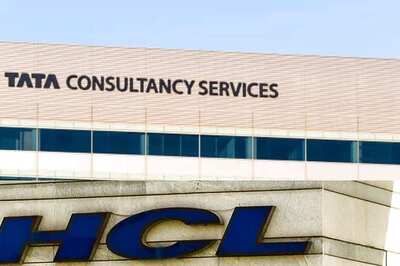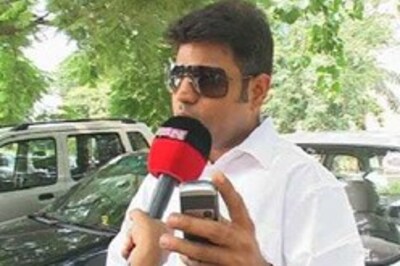
views
Katmandu: Nepal's Communist rebels tightened their blockade of Nepal's key highways Wednesday after accusing the country's political opposition of betrayal for accepting King Gyanendra's offer to restore Parliament.
The Maoist insurgents had backed the opposition's nearly three-week campaign of protests against Gyanendra's royal dictatorship. However, the politicians called off the demonstrations on Tuesday after the king agreed to hand power back to elected officials and apologized for the 15 people killed by security forces during the unrest.
The rebels called the move by the seven-party opposition alliance a betrayal, and on Wednesday their cadres blocked the nation's key highway between Katmandu, the capital, and the resort town of Pokhara, witnesses said.
Outside Pokhara, about 200 km west of Katmandu, suspected Maoists torched a taxi, said officials who spoke on condition of anonymity because they were not authorized to talk to the media.
The rebels also blocked another highway in southern Nepal, along with the main supply route from the border with India—leaving many highways empty, contrary to expectations of traffic resuming to normal levels.
An Associated Press reporter at Bharatpur, about 140 km southwest of Katmandu, said only 30 vehicles, mostly trucks, had left the town for Katmandu on Wednesday.
The Maoists have rejected Gyanendra's restoration of parliament as a ploy to keep his crown. Instead, they are demanding the election of a special assembly to write a new constitution that could limit or eliminate the monarchy's role.
The rebels say the weeks-long blockade—which has left cities short of supplies, especially fuel—will remain in place until the election for the assembly is called.
The parties have said they will announce the election on Friday when the reinstated Parliament meets for the first time.
Meanwhile, a man in western Nepal died from injuries inflicted by security forces during the protests, raising the toll to 15 in the often-bloody demonstrations, which began April 6.
The man was distributing water to protesters when he was shot Saturday in Kusma, about 250 kilometers (160 miles) west of Katmandu. He died Tuesday in Pokhara, said the Western Regional Hospital and local media.
Norway, which suspended aid to Nepal after Gyanendra seized power 14 months ago, said late Tuesday it would resume its financial assistance because Parliament had been reinstated.
In Washington, U.S. Assistant Secretary of State Richard Boucher said the United States would consider renewing military aid to Nepal, but that the move would depend on the army supporting the return of multiparty democracy.
Gyanendra's announcement late Monday of Parliament's restoration brought tens of thousands into the streets Tuesday to celebrate instead of protests, as they had planned.
The opposition nominated a former prime minister to head a new government, expected to be formed in coming days, and the capital came back to life after being largely shut because of the strike, protests and repeated curfews.
Gyanendra seized power in February 2005, saying he needed to restore political order and crush the insurgency, which has left nearly 13,000 people dead in the past decade.



















Comments
0 comment